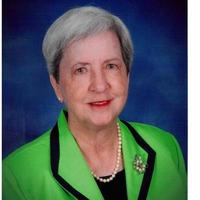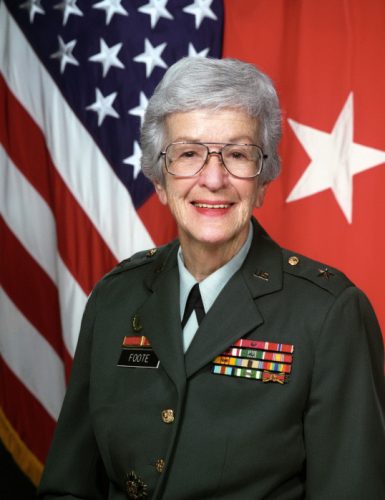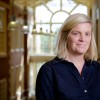This blog post was written by Special Collections & Archives volunteer Shannon Bothwell.
One of the best features about archival materials is their ability to surprise. Stereotypically, archives consist of the papers of prominent men. But archived items from the 20th and 21st centuries include much more than paper; audio recordings, emails and digital documents, printed pamphlets, postcards, video recordings, and more can all be part of the unique items contained in library collections. Moreover, materials created and collected by women are equally significant in shedding light on the people and places they record. These truths are exemplified by the collections of two Wake Forest alumnae held in ZSR’s Special Collections and Archives.
Missionary and Counselor Doris Walters (MA ‘82)

The missionary and pastoral work of North Carolina native Doris L. Walters (1931-2024) took her across the state and across the globe. A native of Anson County, Walters began her career in 1963 as a Minister of Youth and Education at Winter Park Baptist Church in Wilmington, North Carolina. She was then appointed a missionary by the Foreign Mission Board of the Southern Baptist Convention (SBC), and subsequently spent 22 years working in Japan, primarily as the director of a community center, the Fukuoka Friendship House in Fukuoka, Japan. She resigned from this position because of conflicts over the increasingly fundamentalist policies of the SBC and returned to North Carolina, where she focused on supporting the emotional welfare of missionary families. Walters first developed and directed Missionary Counseling and Support Services at North Carolina Baptist Hospital in Winston-Salem, and then in 1993 she left Baptist Hospital to begin Missionary Family Counseling Services in Winston-Salem.
The extensive materials in ZSR’s Doris Walters Papers cover more than six decades of her life experiences from her early education through retirement. Considering her extensive travel and education, it is perhaps not surprising that the collection includes large amounts of correspondence along with notes and research materials for her masters and doctoral projects and several books. Her meticulous record-keeping is evidenced by a series of scrapbooks collecting memorabilia from various periods in her life, as well as many notebooks, journals, and articles documenting her engagement with spiritual life as well as controversies involving the SBC, the Foreign Mission Board, and Gardner-Webb University. Some of the more unusual items in the collection are textiles, artwork and event guest books from Japan, personal photographs from throughout her life, audio recordings of a Japanese choir, and an unpublished autobiography which undoubtedly does much to illustrate her epitaph: “Mine was no hum drum life.”
Brigadier General Evelyn P. “Pat” Foote (‘53)

A military career may not have been an obvious choice for a woman graduating from Wake Forest College in 1953, but Evelyn Patricia “Pat” Foote (1930-2025) becoming a Women’s Army Corps (WAC) Officer in 1959 led to a thirty-year role as a pioneer for gender equality in the U.S. armed forces. During her long and celebrated career, Foote broke many barriers: she was the first woman to serve as a public information officer stationed in Vietnam, the first woman faculty member at the Army War School, the first woman commander of Fort Belvoir, the first woman Inspector General of the Army, and just the fourth woman to become a general in the U.S. Army. Following her retirement in 1989, Brigadier General Foote was a frequent speaker on the issue of women in the military, a key contributor to planning the World War II Memorial on the National Mall, and an active member of five U.S. presidential campaigns.
The Evelyn P. Foote Papers in ZSR’s Special Collections primarily shed light on her Army service and her post-retirement activities. While her military personnel files confirm the dates and details of her entire career, BG Foote’s appointment books and journals provide first-hand perspective on the events she witnessed. Voluminous invitations to speak at conferences and symposia and in media interviews are evidence that she was widely recognized as an expert on military subjects, while the careful research, notes, and speech outlines relating to those speaking engagements demonstrate her conscientious preparation. Extensive video and audio recordings of Foote, along with her many degrees, certificates, medals, and commendations, help fill out a three-dimensional picture of a groundbreaking individual.
Want to Know More?
Resources in these collections may be viewed in person by making an appointment with Special Collections & Archives. Remote research requests may also be submitted through our online contact form.

4 Comments on ‘Trailblazing Wake Forest Women Tell Their Stories Through Archives’
I have heard the names of these two women since I came to ZSR. Thanks for telling us more about how inspiring and amazing each one was! Doris Walters and General Foote!
Thanks, Shannon, for helping Special Collections & Archives tell these important stories!
Lovely way to honor these remarkable women and their contributions.
Congratulations for the informative and timely reports on these collections.